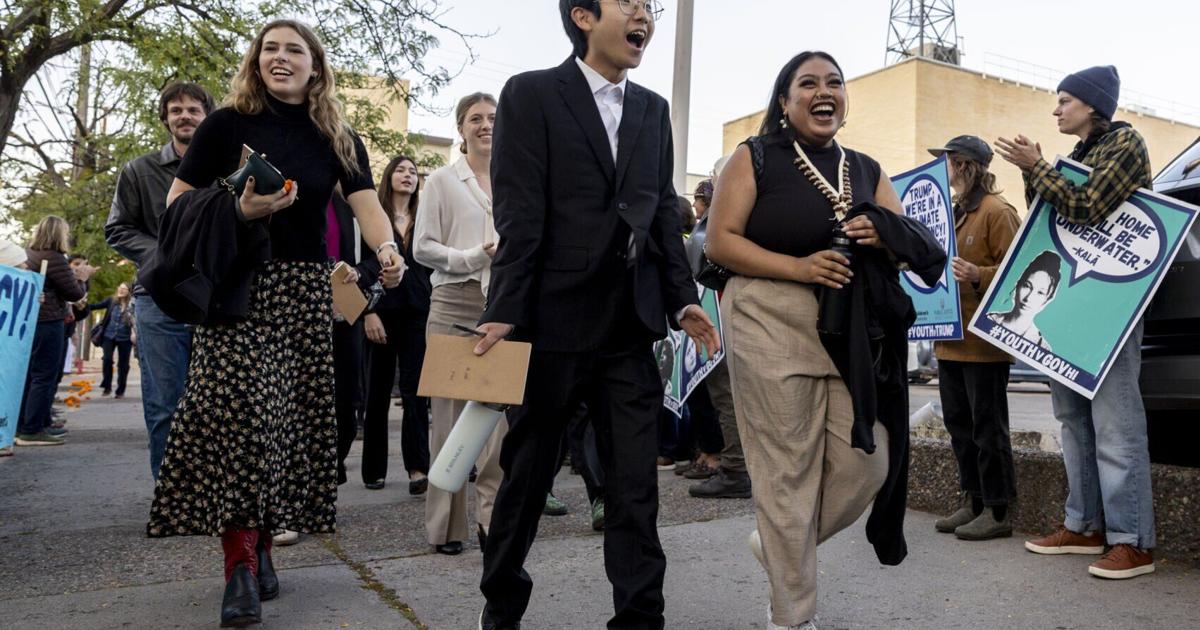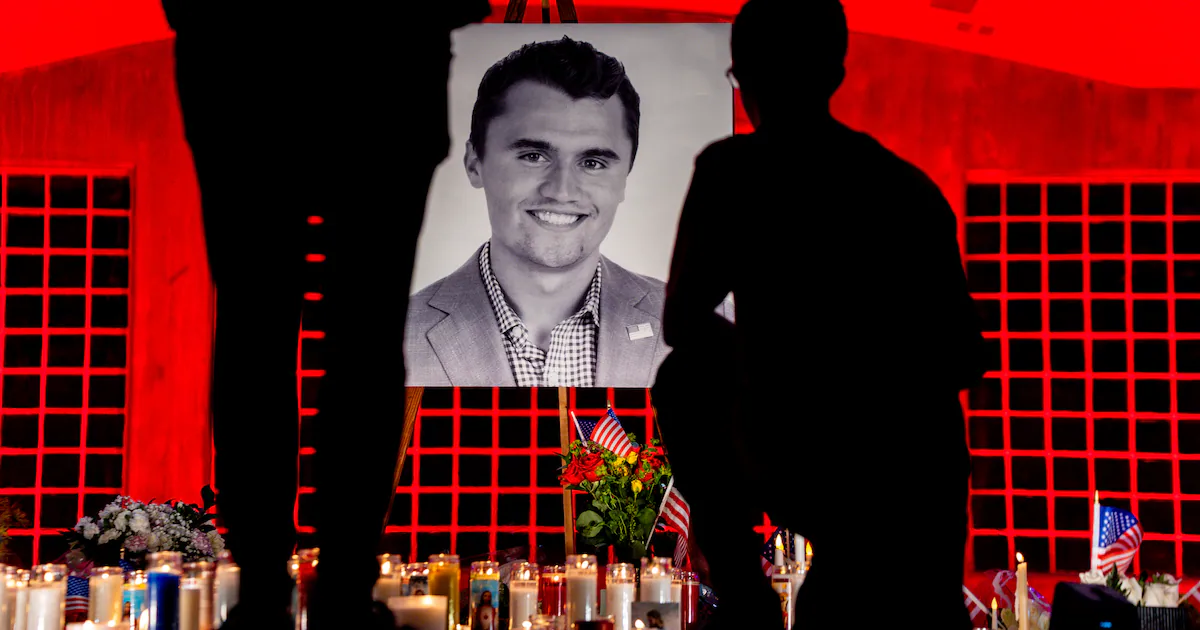
A federal judge in Missoula on Wednesday appeared skeptical of a request by 22 young plaintiffs to halt to a flurry of energy-related actions by the Trump administration this year.
The plaintiffs are alleging that actions following a trio of executive orders issued by President Donald Trump are endangering their federal rights to life and liberty by speeding up fossil fuel development and worsening the negative impacts of climate change.
Nearing the end of a two-day hearing on the case, U.S. District Judge Dana Christensen asked the plaintiffs in Lighthiser v. Trump how the preliminary injunction they’re asking for would play out.
Represented by Our Children’s Trust and Public Justice, the plaintiffs are asking the judge to block the implementation of three executive orders seeking to “unleash American energy” — with the notable exceptions of wind and solar power — declaring a national energy emergency and “revitalizing” the country’s ailing coal industry.
“These plaintiffs are literally advocating and fighting for their lives and their ability to live safely in their bodies and their communities,” Our Children’s Trust founder Julia Olson told the judge during oral arguments.
The federal defendants have repeatedly argued there is no clear connection between the executive orders and a lengthy list of federal actions the plaintiffs allege are accelerating fossil fuel production while “dismantling” climate science. And they argued that the plaintiffs are asking the courts to overstep their authority by directing actions of federal agencies.
“It is an injunction that has no precedent,” federal attorney Michael S. Sawyer argued. “They’re asking the court to step in and stop agencies from reconsidering the previous administrations’ decisions.”
During a lengthy back-and-forth with Our Children’s Trust lead attorney Julia Olson, Judge Christensen was also skeptical of the plaintiffs’ request being potentially outside the scope of his court.
“I’d be required to continue to monitor the actions of this administration, to determine whether or not they are acting in a manner that contravenes my injunction, finding these three executive orders to be unconstitutional, right?” Christensen asked Olson. “That’s what I’d have to do?”
Olson responded that the solution didn’t need to be so complicated, and the federal agencies could be directed to essentially turn back the clock to how their staffs functioned and pursued energy and climate policy prior to Trump’s Jan. 20 executive orders.
“You’re honor, we’re asking to go back to Jan. 19,” she said. “… Your honor won’t need to get involved in each of those (actions) as far as I can foresee at this moment unless, again, they proceed in a way that the president and his secretaries have set up to ‘unleash’ fossil fuels.”
Christensen pressed the issue, and dismissed the idea that the government agencies would acknowledge that future actions stem from the executive actions, if he blocks them.
“The question is, am I going to be called in to review every action of the Department of the Interior, the Department of Energy, the Department of Commerce, as it relates to things that those agencies may do as it relates to fossil fuels?” he asked.
Later on, he added, “Ms. Olson, you’re proposing a program where you and I are going to be spending a lot of time together, and we’ll be having hearings like this until the expiration of our collective lifetimes.”
Earlier in the day, plaintiffs continued to offer testimony that began on Tuesday. Geoffrey Heal, a Columbia University business and international affairs professor who specializes in energy economics, testified that the United States already has sufficient energy resources from wind and solar to provide all its electricity needs — with baseload power from hydroelectricity and nuclear plants.
“The U.S. is unique among industrial countries in being able to produce all the energy it needs by itself,” Heal stated, but later clarified that hydropower-heavy Norway also holds that distinction.
He also called the president’s executive orders “counterproductive” if the actual goal is to reduce the cost of electricity. Heal outlined for the court how wind and solar have become the two cheapest forms of electricity to produce in the United States — and are now far below the costs from fossil fuels. For solar, the per-kilowatt cost of electricity generation in the U.S. fell by 90% from 2009 to 2021.
Dr. Lori Byron, a retired pediatric physician based in Red Lodge, was the lead author on studies examining the impact of climate change on Montanans’ physical and mental health.
Particularly relevant to the plaintiffs in the case, she noted that young Montanans are the most vulnerable to worsening wildfire smoke and heat waves in the state.
“Kids can suffer from injury and illness and death more so than adults because they are relying on somebody else to get them out of harm’s way,” Byron said.
Their still-developing brains make them more susceptible to mental health effects, she added, like anxiety or trauma from being forced to evacuate during a severe climate events. And wildfire smoke impacts them more acutely because they breathe more air, on average, than adults.
And the extreme heat that’s become more common with climate change, Byron testified, “is a threat multiplier.”
“The kids that are born with lung disease or heart disease, or develop diabetes in their lifetimes, when they’re exposed to heat they have a lot more health problems.”
She pointed to the testimony of plaintiff Joseph Lee the day before, who recounted his 2023 hospitalization due to an extreme heat wave where he lives in California.
After being overcome by nausea, “I collapsed onto the floor,” Lee said. “I don’t know what happened next, because I blacked out, but I was rushed to the ambulance. There I learned that I was on the brink of organ failure.”
On of his fellow plaintiffs, a 17-year-old Missoula resident identified in court documents as Isaiah H., testified Wednesday morning to the impacts of smoke from Montana’s worsening wildfire seasons. As a track star at his high school, Isaiah said the poor air quality has hurt his ability to compete in a sport that has already opened up college opportunities for him.
“The three months of summer are super important, because that’s where we build up our base fitness for racing during the school year,” he said. “… It hurts my lungs, it’s hard to breathe.”
In all, five of the plaintiffs in the case took the stand over the two-day hearing.
Oral arguments were still ongoing as of press time on Wednesday, and Judge Christensen had not indicated when he would rule on the plaintiff’s request for an injunction, or the defendants’ motion that the case be dismissed.
Sam Wilson is the outdoors and environment reporter at the Missoulian.
Love
0
Funny
0
Wow
0
Sad
0
Angry
0
Get Government & Politics updates in your inbox!
Stay up-to-date on the latest in local and national government and political topics with our newsletter.
* I understand and agree that registration on or use of this site constitutes agreement to its user agreement and privacy policy.
Sam Wilson
State Bureau Reporter
Get email notifications on {{subject}} daily!
Your notification has been saved.
There was a problem saving your notification.
{{description}}
Email notifications are only sent once a day, and only if there are new matching items.
Followed notifications
Please log in to use this feature
Log In
Don’t have an account? Sign Up Today



